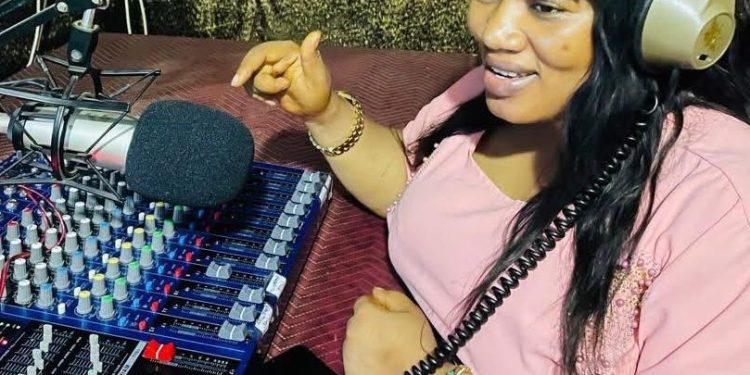By Hassan Osman Kargbo
The Guardians of Free Speech and SpeakUp Movement Sierra Leone have expressed their unwavering support for journalist Umu Thoronka, who is challenging her dismissal from the Sierra Leone Broadcasting Corporation (SLBC) at the ECOWAS Court of Justice.Thoronka, a seasoned journalist, filed a petition against the Government of Sierra Leone, asserting that her termination violated multiple regional and international human rights provisions. The case has drawn attention to broader issues of press freedom, gender-based discrimination, and the safety of female journalists in Sierra Leone and across West Africa.
According to Thoronka, she was dismissed from SLBC in July 2024 after posting a video on TikTok documenting the public humiliation of a woman during a Presidential Town Hall Meeting. SLBC executives reportedly viewed the video as critical of President Julius Maada Bio. Thoronka’s dismissal followed years of alleged sexual harassment and gender-based discrimination she endured at the state-owned broadcaster.
“This case is not only about my dismissal; it reflects the broader challenges faced by women journalists in West Africa,” Thoronka said. “We cannot continue to suffer in silence. Speaking out against harassment and intimidation must not cost us our careers, our dignity, or our safety.”
The petition argues that the Government of Sierra Leone violated Thoronka’s rights to freedom of opinion and expression, dignity, and equitable working conditions. The journalist also claims that the government failed to investigate her complaints and that threats and intimidation forced her into exile. These circumstances, she asserts, demonstrate a systemic disregard for press freedom and the safety of female journalists in the country.
The Guardians of Free Speech and SpeakUp Movement Sierra Leone are calling on the ECOWAS Court of Justice to hold the government accountable and reaffirm the rights of women journalists. They are also urging the government to implement policies that protect media workers from harassment, discrimination, and intimidation.
In addition, the organizations are calling on media institutions across West Africa to dismantle cultures of impunity and ensure safe, equitable workplaces for journalists. They stress that freedom of expression is non-negotiable and that justice delayed is justice denied.
The case has highlighted the challenges faced by women in media, particularly in state-owned institutions, where speaking out against powerful figures can have professional and personal consequences. Advocacy groups argue that ensuring safe working conditions for female journalists is critical for the overall health of press freedom and democracy in the region.
Thoronka’s legal action has also sparked a wider conversation about accountability and gender equality in media. Many journalists and civil society actors see the case as a landmark moment that could set precedent for stronger protections for women in media across West Africa.
The Guardians of Free Speech and SpeakUp Movement concluded their statement by affirming their solidarity: “We stand with Umu Thoronka. We stand with Women in the Media Sierra Leone (WIMSAL). We stand with all female journalists in Sierra Leone. We stand for truth.”
As Thoronka’s petition proceeds, the outcome of the ECOWAS Court case will be closely watched both in Sierra Leone and across the region, with many seeing it as a test of the continent’s commitment to press freedom, gender equality, and human rights.













